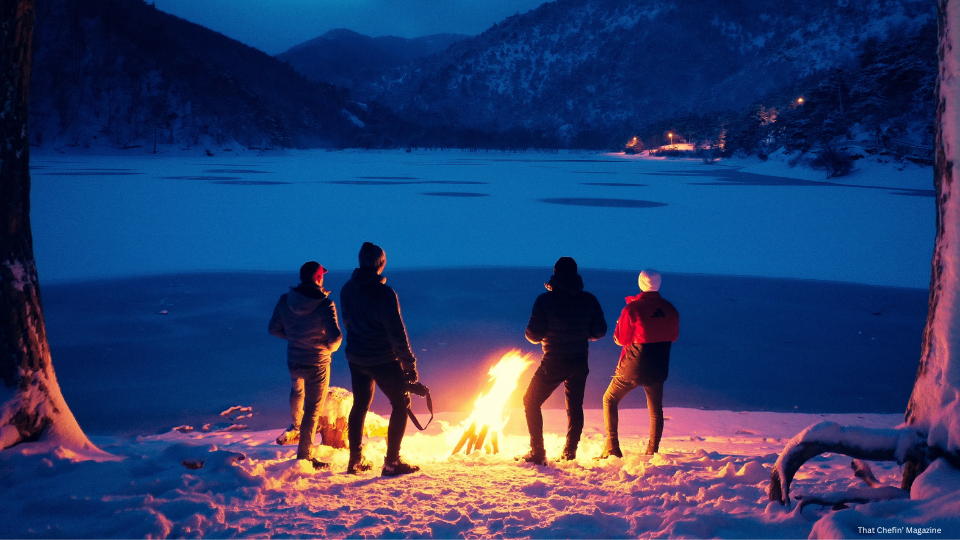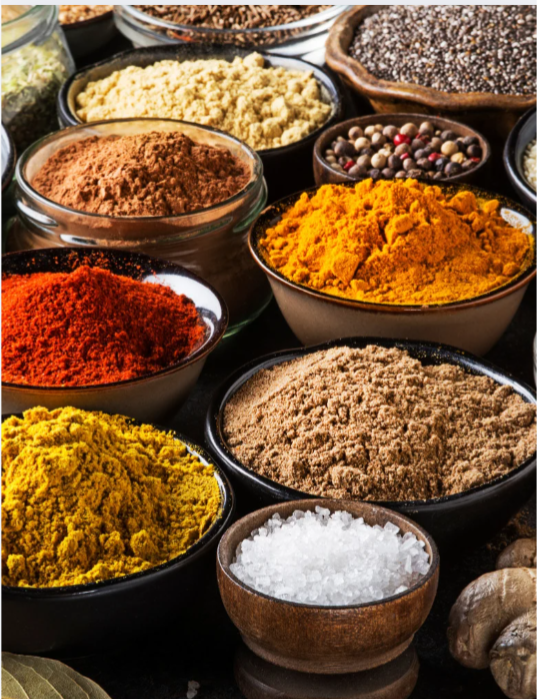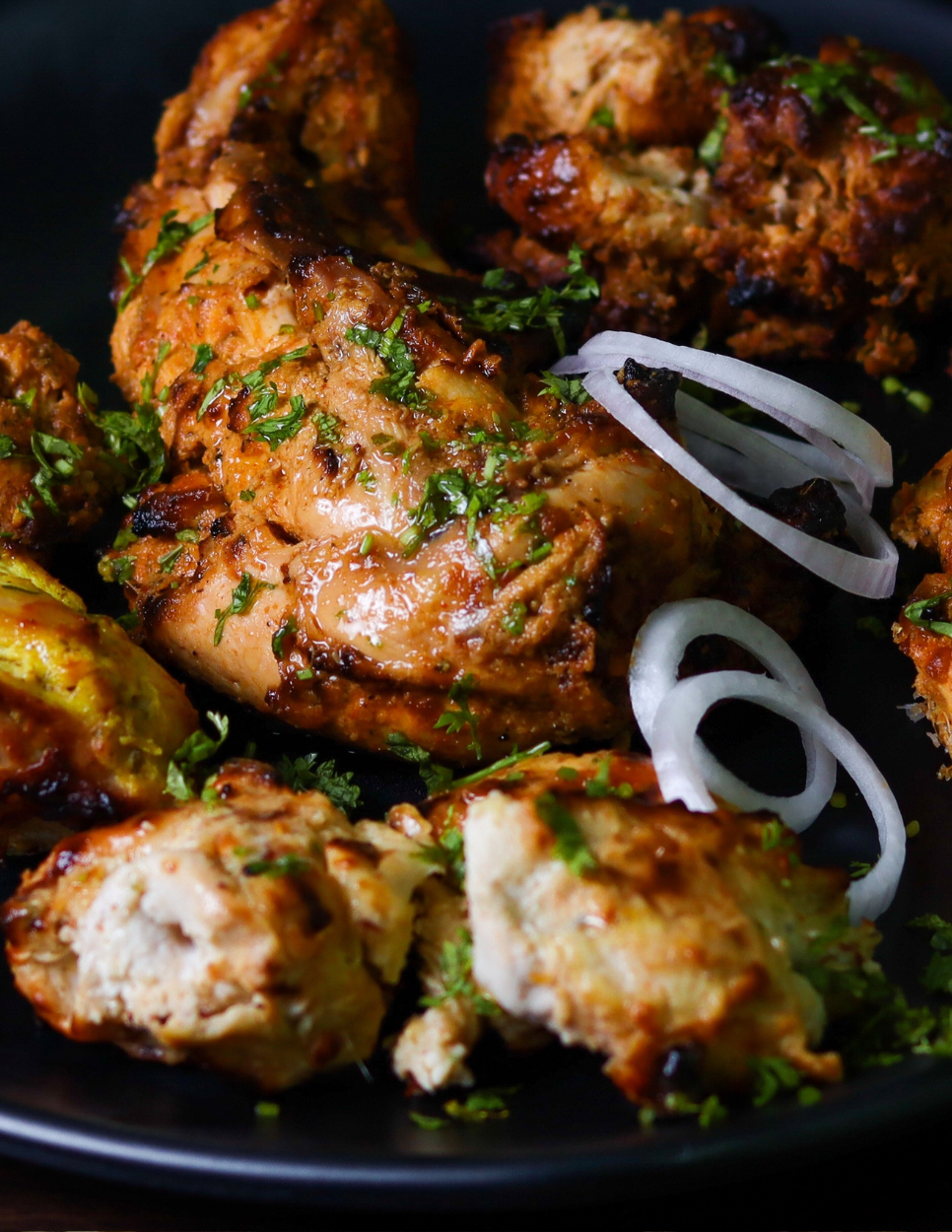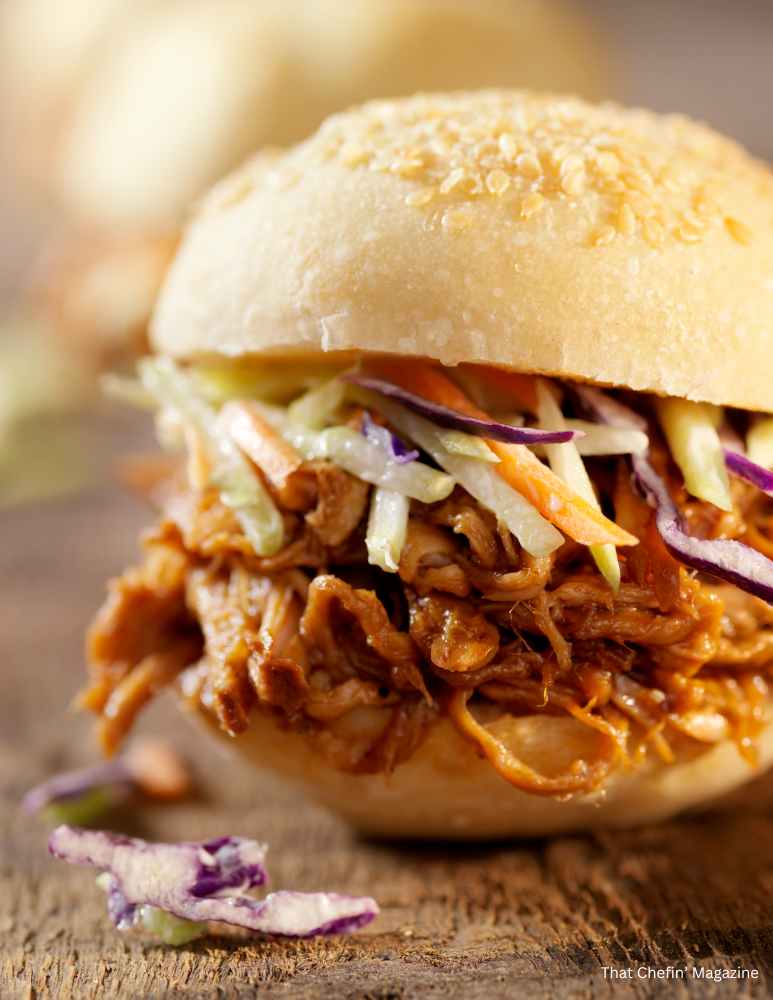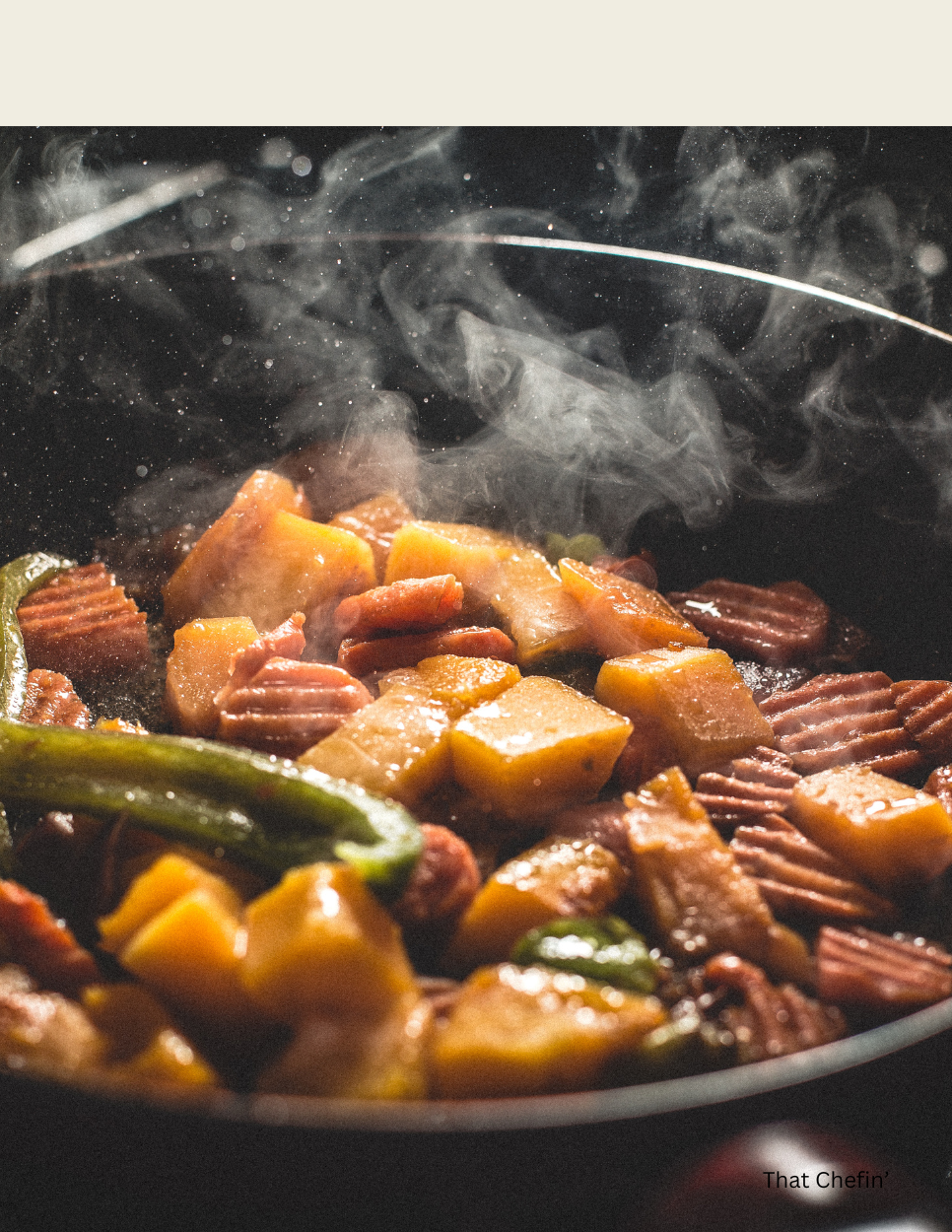Winter camping presents unique culinary challenges. Forget leisurely campfire cooking; you need efficient, warm meals that fuel your body in the frigid outdoors. This guide covers everything you need to know about winter camping cooking, from gear essentials to delicious, easy recipes.
The Essential Gear:
- Stove: A reliable stove is your lifeline. White gas stoves perform well in extreme cold, but canister stoves are lighter and more compact (just ensure you use a canister rated for low temperatures). Consider a multi-fuel stove for maximum versatility.
- Fuel: Carry ample fuel, as cold temperatures can reduce efficiency. White gas requires a fuel bottle, while canister stoves use pre-filled canisters. Always pack more than you think you’ll need.
- Cookware: Choose lightweight and durable pots and pans. A set with varying sizes is helpful for different meals. A long-handled spoon or spatula is essential for stirring and serving.
- Utensils: Pack a lightweight set of utensils, including a spoon, fork, and knife.
- Dishes and Mugs: Choose insulated mugs to keep your drinks warm. Bowls and plates should be durable and easy to clean.
- Water Filter or Purification Tablets: Access to clean water is crucial. Melting snow requires significant fuel, so a water filter or purification tablets are recommended.
- Insulated Water Bottles or Thermos: Keep your water from freezing by using insulated bottles or a thermos.
- Food Storage: Protect your food from animals and the elements. Bear canisters are required in some areas, while waterproof bags are essential for keeping food dry.
Planning Your Meals:
- High-Calorie Foods: Winter camping requires more energy, so pack high-calorie foods that provide sustained energy. Think of nuts, seeds, dried fruits, energy bars, and whole grains.
- Easy Preparation: Choose meals that are quick and easy to prepare. Freeze-dried meals, instant noodles, and pre-cooked meals are excellent options. Minimize cooking time to conserve fuel and warmth.
- One-Pot Meals: One-pot meals are ideal for winter camping, as they minimize cleanup and conserve fuel. Think of stews, chili, and pasta dishes.
- Hydration is Key: Staying hydrated is crucial in cold weather. Bring plenty of water and consider hot drinks like tea, cocoa, or instant coffee.
- Pack it Out: Always pack out all your trash, including food scraps and packaging.
Cooking Tips
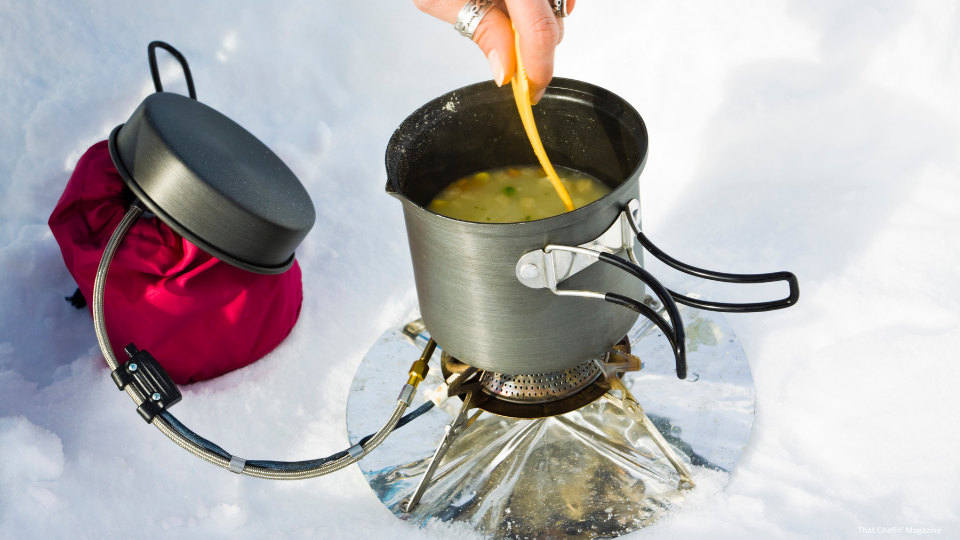
- Melt Snow for Water (if necessary): If you need to melt snow for water, use a dedicated pot and ensure the snow is clean and white. Bring snow to a boil to purify it.
- Conserve Fuel: Use a windscreen to protect your stove from wind, which can significantly reduce fuel efficiency. Melt snow in small batches to avoid wasting fuel.
- Keep Food Warm: Insulate your food by wrapping it in a towel or placing it in a thermal bag. This will help keep it warm until you’re ready to eat.
- Practice at Home: Before your trip, practice cooking your meals at home to ensure you have all the necessary ingredients and equipment.
- Pre-Portion Meals: Pre-portioning your meals into individual bags or containers can save time and effort in the cold.
- Consider Frozen Ingredients: Frozen vegetables and pre-cooked meats can stay frozen during your trip and simplify meal preparation.
- Embrace the Freezer Bag Cooking Method: This method involves placing dehydrated or freeze-dried food in a freezer bag, adding boiling water, and letting it sit until rehydrated. It minimizes cooking time and cleanup.
Delicious and Easy Winter Camping Recipes
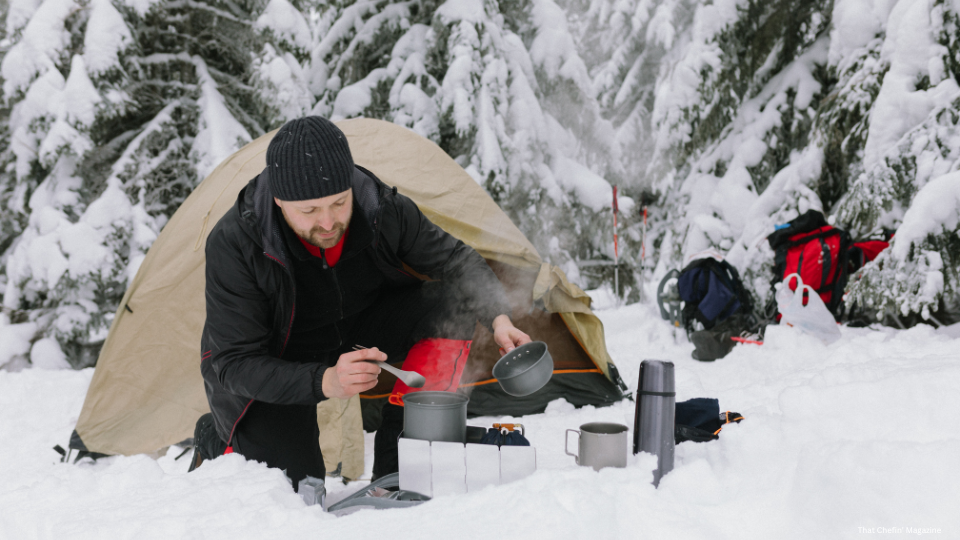
- One-Pot Chili: Combine canned beans, diced tomatoes, chili seasoning, and your choice of protein (pre-cooked ground beef or vegetarian crumbles). Simmer until heated through.
- Instant Oatmeal with Dried Fruit and Nuts: A quick and easy breakfast option. Just add hot water to instant oatmeal and top with dried fruit and nuts.
- Mac and Cheese: Pre-cook the pasta at home and store it in a sealed container. In camp, simply heat up some cheese sauce and add the pasta.
- Freeze-Dried Meals: A convenient and lightweight option. Just add hot water and let it sit until rehydrated.
- Peanut Butter and Jelly Wraps: A no-cook lunch option that provides quick energy.
Safety First:
Planning carefully and use the right gear, winter camping cooking can be a rewarding experience. Enjoy the warmth of a hot meal in the midst of a snowy landscape!
- Carbon Monoxide: Never use a stove inside a tent or enclosed space, as this can lead to carbon monoxide poisoning. Always cook in a well-ventilated area.
- Fire Safety: Be careful when using a stove and keep a safe distance from flammable materials.
Winter camping might sound intimidating, but with the right preparation and knowledge, it can be a truly magical experience. Waking up to a world blanketed in pristine snow, the crisp air invigorating your lungs, and the quiet beauty of nature surrounding you.
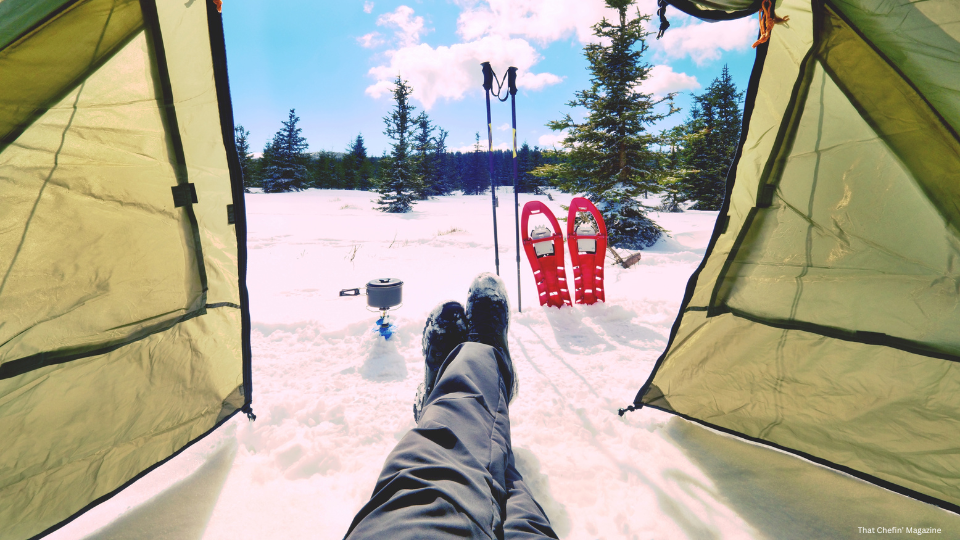
Preparation is Key:
Winter camping requires meticulous planning. The key is to stay warm, dry, and safe. Here’s a breakdown of what you need to consider:
- Gear Up for the Cold: Layering is crucial. Start with a moisture-wicking base layer (merino wool or synthetic), add an insulating mid-layer (fleece or down), and finish with a waterproof and windproof outer shell. Don’t forget warm socks, gloves, a hat, and a neck gaiter.
- Shelter from the Storm: A four-season tent is a must. Look for one with a sturdy frame and a good snow rating. Practice setting it up at home before your trip. Consider bringing a snow shovel to dig out a platform for your tent and build snow walls for added protection.
- Sleep Soundly: A winter-rated sleeping bag is essential. Check the temperature rating to ensure it’s suitable for the conditions you’ll be facing. A sleeping pad with a high R-value (insulation rating) will protect you from the cold ground.
- Safety First: Carry a first-aid kit, a map and compass (and know how to use them!), a GPS device or satellite communicator, a headlamp with extra batteries, and a whistle. Let someone know your itinerary and expected return time. Check the weather forecast before you go and be prepared to adjust your plans if necessary.
Essential Gear Checklist
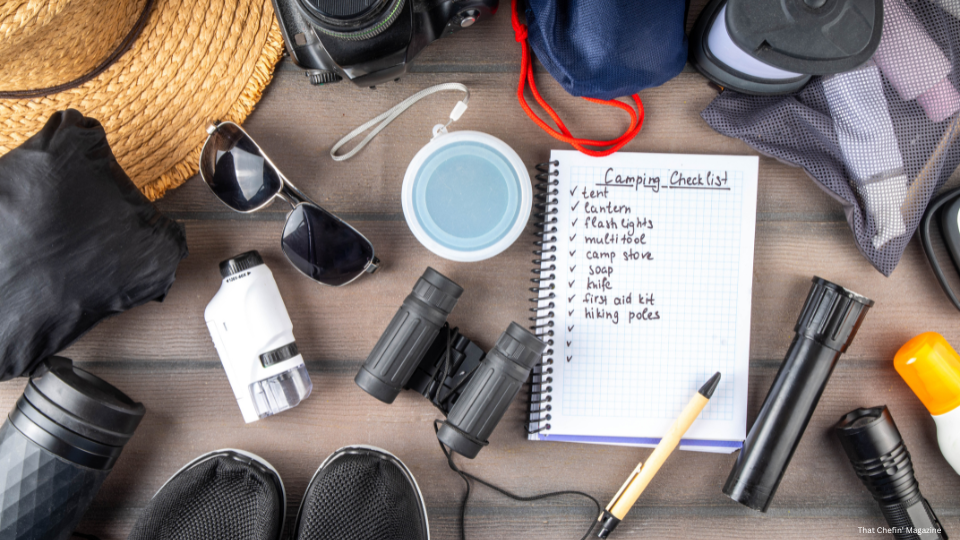
- Four-season tent
- Winter-rated sleeping bag and pad
- Layered clothing (base, mid, outer)
- Warm socks, gloves, hat, and neck gaiter
- Waterproof boots
- Camp stove and fuel
- Cooking pot and utensils
- Food and water
- Water filter or purification tablets
- First-aid kit
- Map, compass, GPS, or satellite communicator
- Headlamp with extra batteries
- Whistle
- Snow shovel
- Trekking poles (optional)
- Sunscreen and sunglasses
Where to Embrace the Winter Wonderland:
Choosing the right location is vital for a safe and enjoyable winter camping trip. Here are a few suggestions, keeping in mind that conditions can vary, so always check with local authorities and park services for the latest information and safety guidelines:
- National Parks: Many National Parks offer winter camping opportunities, but permits are often required. Consider exploring parks like Yellowstone (Wyoming), Mount Rainier (Washington), or Acadia (Maine). Be sure to research their specific winter camping regulations and prepare accordingly.
- State Parks and Forests: State parks and forests can be excellent options, often offering more accessible terrain and fewer crowds than National Parks. Check with your local state park service for recommendations.
- Designated Wilderness Areas: For experienced winter campers seeking solitude, designated wilderness areas can provide a truly immersive experience. However, these areas often require advanced planning and skills.
Safety Considerations:
- Avalanche Awareness: If you’re camping in mountainous terrain, avalanche awareness is paramount. Take an avalanche safety course and be aware of the signs of unstable snow.
- Hypothermia: Know the signs of hypothermia and how to prevent it. Stay dry, warm, and hydrated.
- Frostbite: Protect your extremities from frostbite by wearing warm gloves and boots.
- Navigation: Winter landscapes can make navigation challenging. Be sure you have the necessary skills and equipment to navigate safely.
Embrace the Adventure:
Winter camping is a challenging but rewarding experience. With proper planning and preparation, you can conquer the cold and enjoy the unique beauty of the winter wilderness. So, gear up, do your research, and embrace the adventure!
